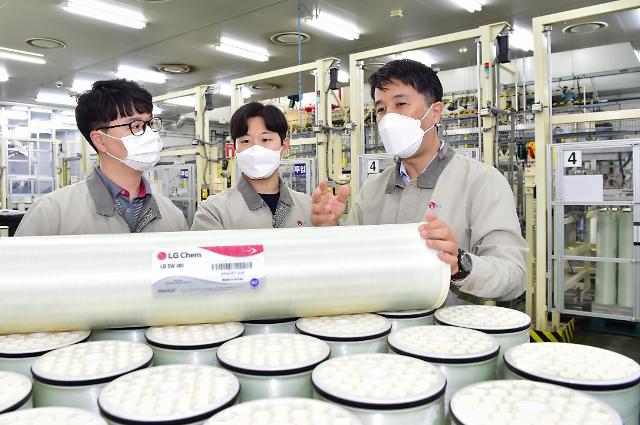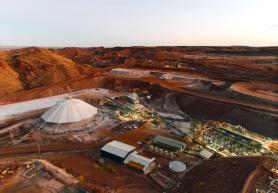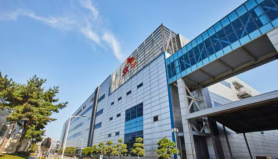
[Courtesy of LG Chem]
Reverse osmosis (RO) is a process of removing salt and other substances from water through a semi-permeable membrane. RO membranes are favored over evaporation methods as the filters can reduce the amount of energy necessary to produce lithium. Conventionally, the heat was mainly used to evaporate water to increase the lithium concentration dissolved in saline lakes. However, RO membranes can filter out water molecules without the use of heat.
LG Chem said in a statement that its RO membranes were shipped to China's largest lithium extraction project carried out in the northwestern province of Qinghai. Lithium carbonate will be produced by TUS-Qingyuan, the operator in charge of the lithium extraction project's engineering, procurement, and construction.
"In line with the surge in global demand for lithium, LG Chem will lead the market by combining our global leadership in battery materials and RO membranes," LG Water Solution head Hyung Hoon said in a statement on March 22. The company aims to ship RO filters to other lithium extraction projects in China and South America.
China is one of the largest electric vehicle (EV) markets in the world. According to data compiled by KOTRA, a state-funded trade and investment promotion organization, China produced about three million EVs in 2021, up 166.2 percent from a year ago.
LG Chem is currently working with Korea University to come up with a more efficient process to shorten the lithium concentration process that took more than several months to several hours.
Copyright ⓒ Aju Press All rights reserved.




